Being the child of a not good enough mother has affected you in many different ways. Adult children of not good enough mothers tend to endure emotional turmoil, manipulation, and a constant need to seek her approval.
However, people who experience parental abuse have a strength other people don’t. This article is going to discuss about not good enough mothers in detail, and also talk about how to break free from the effects of parental abuse.
KEY POINTS
- Children of not good enough mothers are at an elevated risk for experiencing depression, anxiety, and issues with self-regulation.
- Research shows that abuse, manipulation, betrayal, and poor parenting are the primary reasons adult children sever ties with their mothers.
- Adults who suffered parental abuse during childhood often struggle to heal until they permanently separate from some members of their families.
Mother’s Day is a bouquet of flowers paired with a societal whisper that all moms love and compassionately care for their children. And most do, but some don’t, and it is the latter category there is no Hallmark card for.
If there was, it would be small and blank or perhaps have a catching phrase like, “It sure was fun when you use to drive us kids around drunk,” “I love remembering all of the afternoons you forgot to pick me up from practice,” or “It was awesome being the only kid at school who didn’t pack lunch, because her mom hadn’t gotten out of bed for two weeks and there was no food in the house.”
Related: How To Know You Have A Narcissistic Mother Wound
The “Not Good Enough Mothers”
In her book, The Not Good Enough Mother, psychologist Sharon Lamb (2019) recounts stories of mothers who struggle and the heavy task of evaluating family trauma in order to make a recommendation to keep a family together or terminate parental rights.
These mothers are not the responsive and nurturing set that Winnicott, the English paediatrician and psychoanalyst, coined in 1953 as the “good enough mothers,” offering care and comfort across chapters of childhood where the joy overrides the dread.
Instead, these are the moms who lack “parental reflective function” or the ability to intuit their child’s needs and feelings, putting their daughters and sons at risk for what psychologists refer to as insecure attachment, an outgrowth of mothering that is withdrawn, agitated, or unpredictable—causing her child to inhibit or exaggerate her emotions in an effort to be forgotten or noticed by the mother she perceives does not care (Biringen and Robinson, 1991).
Over time, that child becomes accustomed to caring for herself and others, understanding that she is very much alone and the carefree childhood depicted on the Disney Channel doesn’t apply to her (Letourneau, Anis, Ntanda, Novick, Steele, Steele, and Hart, 2020).
Intentional or unintentional, these are all forms of abuse and somebody should have stopped it. Children do not have the power to rescue themselves, but as they grow into adults, they begin to recognize their right to thrive and take action toward self-preservation.
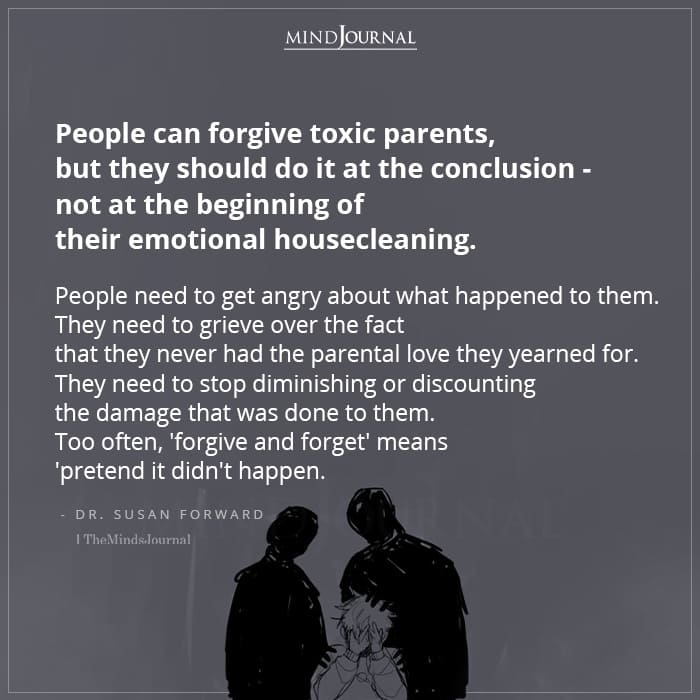
The Transfer of Trauma
As wet paint transfers to the hands of those who touch it, a mother’s terror leaves its mark all over her children, in the form of bruises, insecurities, and hopelessness. Children take on this coating differently.
Research shows, children of not good enough mothers are at an elevated risk for suffering from depression, anxiety, and issues with self-regulation. Sometimes one child will fend off the mental illness of her mother, taking on the caretaker role, while the other one lets the illness seep into her, as she starts to exhibit some of the characteristics of the toxic mom who raised her (Trupe, Macfie, and Skadberg, 2018).
In this circumstance, the caretaker child must manage her mother and siblings, causing her world to become smaller, scarier, and increasingly full of despair (Steinbeck, Berg-Nielsen, Belsky, Helland, Hagenrud, Raballo, and Wichstrom, 2019).
Often the caretaker child becomes reluctant to go out, fearing her mother will injure herself in her absence, and scared to stay in, petrified she will become the object of the next tirade. So she settles for the comfort of a locked bedroom door to shield her.
Related: Children Of Narcissistic Parents: The Challenge of ‘Reparenting’ Yourself
Adulthood Offer New Realizations
As trauma survivors, children of not good enough mothers walk hesitantly into adulthood perplexed by the healthy relationships they see modelled from their significant other, friends, and co-workers.
Like a dinner bell, the world starts to announce to them that it was not OK that their mother pushed them down the stairs, went weeks without talking, and rarely attended school events sober.
The realization of the dysfunction can be shattering, causing many adult survivors to seek out the safe couch of therapy to process the danger and the hurt.
Inside these realizations, adult children begin to grieve for what Agllias (2018) calls the “missing family,” slowly internalizing the significance of the loss.
Therapy provides a soft pillow to be vulnerable, inviting them to recognize that their mother is unlikely to change, and so the frisbee is tossed back to them to decide how they will gather the pieces of themselves scattered across the memories of a traumatic childhood and gently glue them back together again in a configuration they can live with.
As that repair work is underway, ideally in partnership with a licensed counsellor, they begin to see the need for an alarm system of sorts, a mechanism they can use to protect themselves from the very real possibility that their mother will attempt to shatter their newly formed selves and once again drag them back to the traumas of childhood (Streep, 2009).
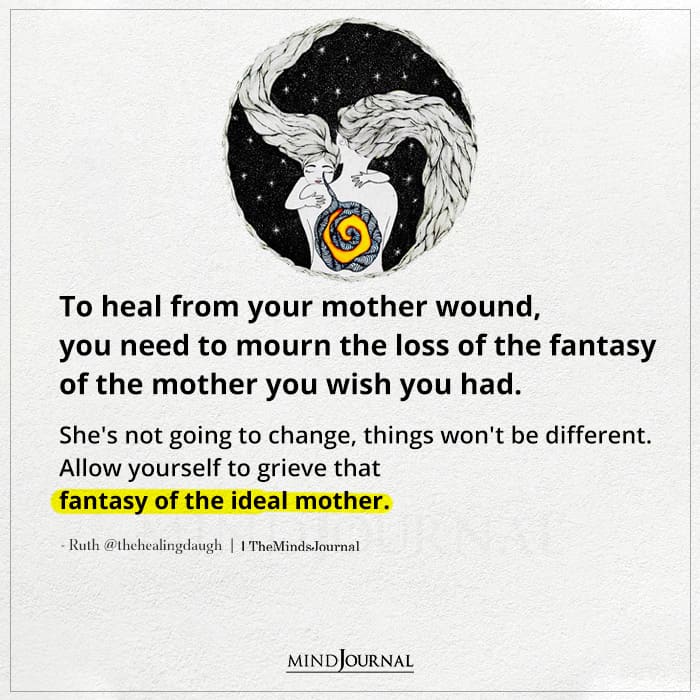
Building Protective Barriers
At this stage, adult children internalize that it is not in their power to fix their mother, but it is in their capabilities to protect themselves. Now, when they look in the mirror, the hazy reflection of their mother has faded and in its place is a beautiful individual who has decided to be better than who they were raised to be.
There is no right path at this juncture. Some adult children of not good enough mothers can maintain healthy boundaries coupled with minimal engagement, for severing relations is not always possible due to a myriad of circumstances.
However, despite society’s diatribe that one must maintain contact with one’s family, trauma survivors and experts understand that connection is often incompatible with a healthy and healing life.
Victims of abuse, betrayal, and constant manipulation may find estrangement offers them the only hope of disconnecting from the pain (Scharp and McLaren, 2018). This severing is often entered into with the support of a therapist.
Sometimes siblings and family members shame the victims for attempting to protect themselves, retraumatizing the adult children, and making the road to recovery exponentially more complex (Scharp, Thomas, and Paxman, 2015).
This dynamic may happen when a sibling has inherited the mental illness or toxicity of the mother, therefore not recognizing the behaviour as harmful, or because family members intuitively understand that if they were to support the trauma victim, they would need to acknowledge their past failures to protect a young child who desperately needed their help.
Despite the family upheaval, adult children of not good enough mothers often find estrangement is the only healthy option, and research shows estranged adult children often fare better than those who attempt an “on-again/off-again” dysfunctional relationship with the mom who hurt them (Agllias, 2018).
Adulthood gifts trauma survivors the power and permission to save themselves when nobody else will save them.
Related: How Toxic Mothers Are Created: Understanding The Journey To Abusive Motherhood
Learning to Mother Ourselves
Adult children of abusive mothers are in pain because the person who was supposed to care and nurture them wasn’t up for the job. They continue to hurt because those who were equipped to see and stop the abuse declined.
As children, they were powerless but now they have options. Today, they can begin to learn to mother themselves.
Below are three invitations to initiate the mothering process:
1. Start by writing a letter to yourself in the voice and role of a compassionate mother giving advice (Trupe, Macfie, Skadberg, and Kurdziel, 2018).
It may sound something like this:
“Dear Lily, You are brave and strong. I know you have trouble trusting new people and circumstances, because you grew up surrounded by people who couldn’t be trusted. Things are different now. You have built a community you can count on. As a child, you didn’t have the tools to protect yourself.
Today, you have learned to listen to your body when it tells you something feels wrong, to walk away from people who make you feel unsafe, and to only enter into and stay in relationships with those who recognize and honour your value. You are doing a great job. I am proud of you.
Love~ Your Mothering Self.”
2. Now, fold a piece of paper in half. On one side, describe how you care for your children, nurture your friendships, and live a life in sync with your values. It may be helpful to give examples of how you conduct yourself at holidays, mealtime, and at important family events.
Now, next to each item you described, share how your mother or other toxic family members handle themselves in the same circumstance. Notice the differences in how you function, love, and care for those around you. You are not your mother (Scharp and McLaren, 2018).
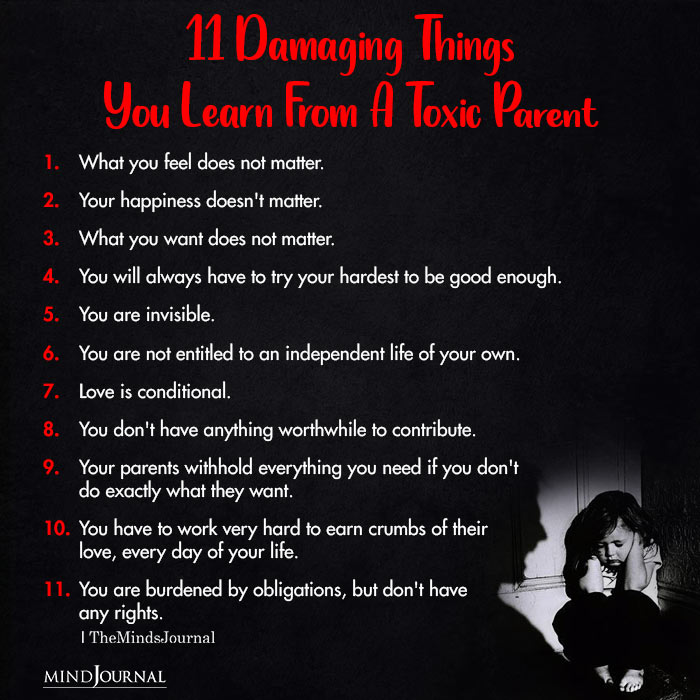
3. Lastly, help to extinguish the societal taboo of the “not good enough mothers” by telling your story inside relationships with people who have earned the right to hear your truth.
This may be a therapist, a partner, or a friend you trust to hold your narrative with compassion and care while helping you to see the strength and fortitude it took to survive (Streep, 2009).
Related: The Good Daughter Syndrome: 7 Signs of Narcissistic Mother Empath Daughter Dynamics
Mother is a role that some innately assume with grace and compassion, while others struggle to show up for the task.
You have a right to be angry, you have a right to be heard, and you have a right to mourn the “not good enough mother” while learning to put into place the relationships, barriers, and practices that allow you to mother yourself.
References:
Agllias, K. (2018). Missing family: The adult child's experience of parental estrangement. Journal of Social Work Practice, 32(1), 59–72. Biringen, Z., & Robinson, J. (1991). Emotional availability in mother–child interactions: A reconceptualization for research. American Journal of Orthopsychiatry, 61(2), 258–271. Lamb, S. (2019). The Not Good Enough Mother. Beacon Press. Letourneau, N., Anis, L., Ntanda, H., Novick, J., Steele, M., Steele, H., & Hart, M. (2020). Attachment & child health (attach) pilot trials: effect of parental reflective function intervention for families affected by toxic stress. Infant Mental Health Journal, 41(4), 445–462. Scharp, K. M., Thomas, L. J., & Paxman, C. G. (2015). "it was the straw that broke the camel's back": exploring the distancing processes communicatively constructed in parent-child estrangement backstories. Journal of Family Communication, 15(4), 330–348. Scharp, K. M., & McLaren, R. M. (2018). Uncertainty issues and management in adult children’s stories of their estrangement with their parents. Journal of Social & Personal Relationships, 35(6). Steinsbekk, S., Berg-Nielsen, T. S., Belsky, J., Helland, E. B., Hågenrud M, Raballo, A., & Wichstrøm, L. (2019). Parents' personality-disorder symptoms predict children's symptoms of anxiety and depressive disorders - a prospective cohort study. Journal of Abnormal Child Psychology, 47(12), 1931–1943. Streep, P. (2009). Mean mothers: Overcoming the legacy of hurt. New York: Collins Living. Trupe, R. D., Macfie, J., Skadberg, R. M., & Kurdziel, G. (2018). Patterns of emotional availability between mothers and young children: associations with risk factors for borderline personality disorder. Infant and Child Development, 27(1). e2046. Winnicott, D. W. (1953). Transitional objects and transitional phenomena; a study of the first not-me possession. The International Journal of Psychoanalysis, 34, 89–97.
Written By Dorothy Suskind Originally Appeared On Psychology Today
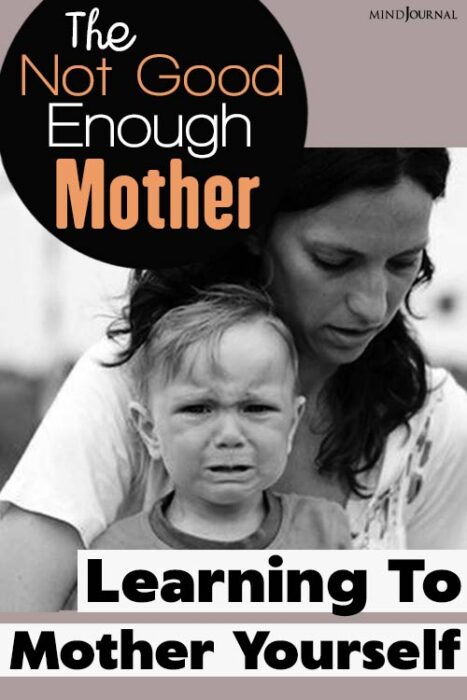
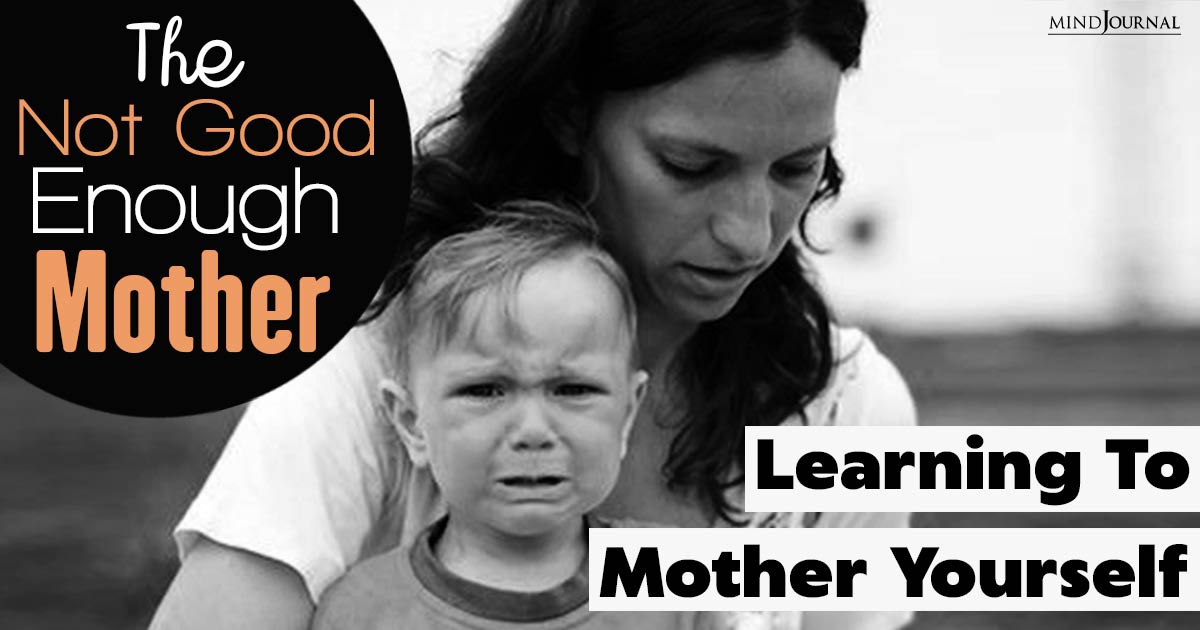






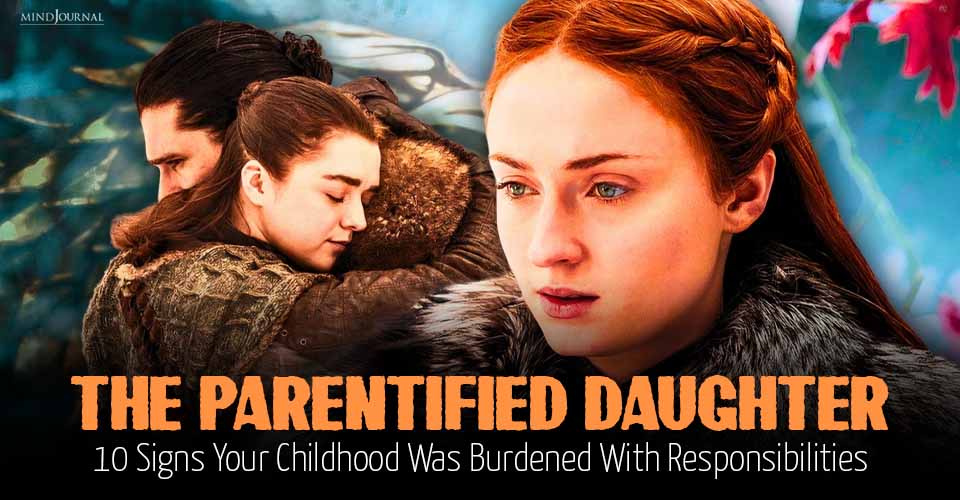
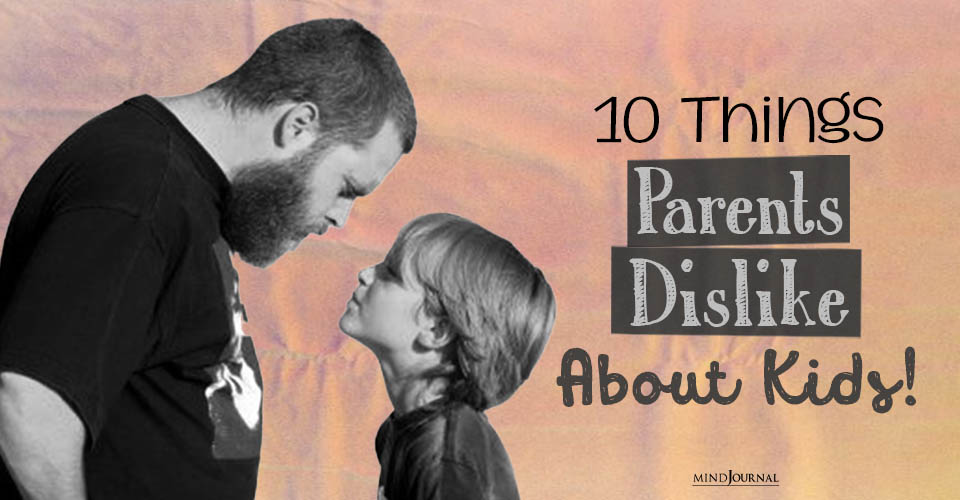
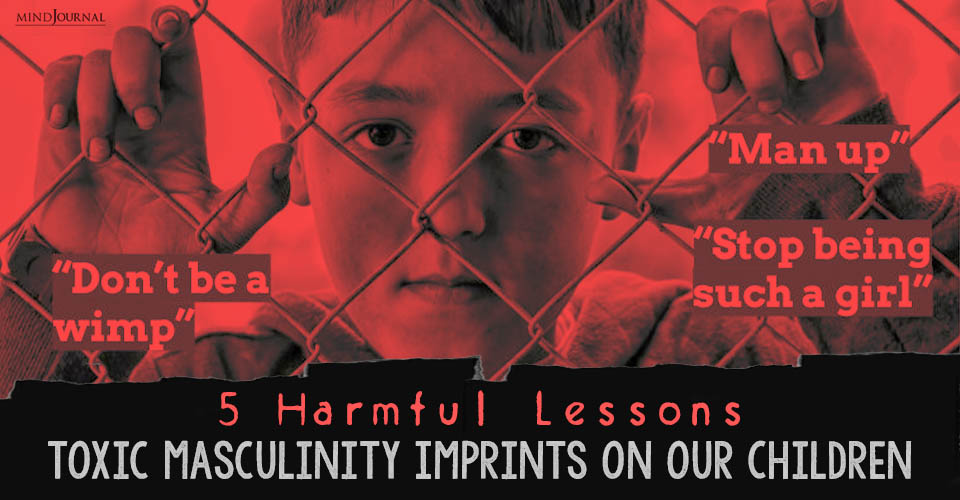


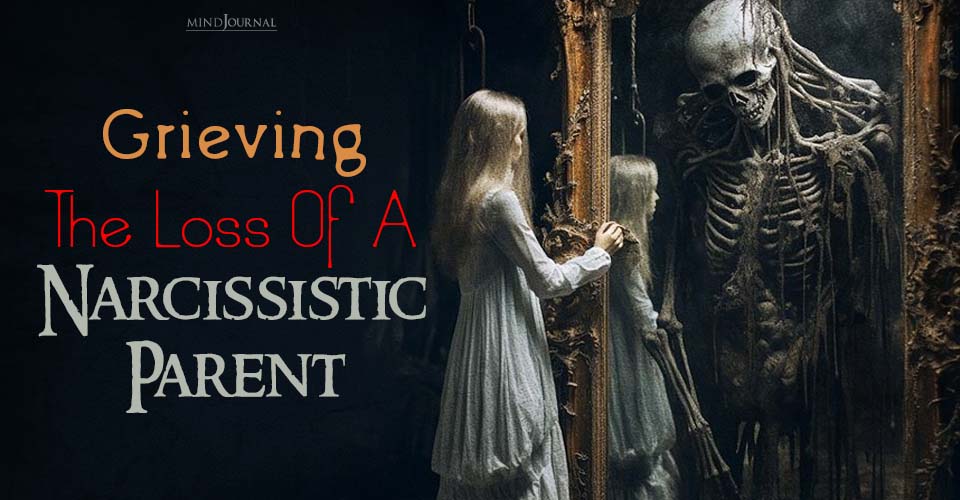
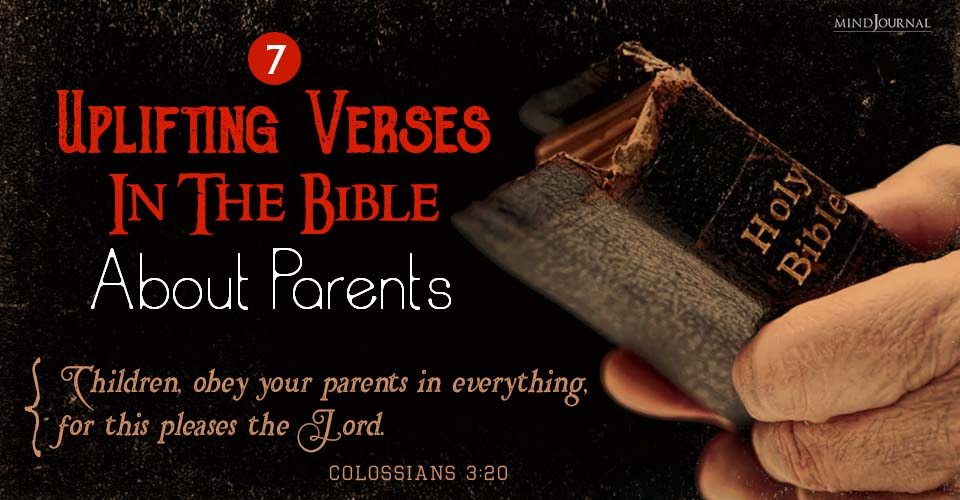
Leave a Reply
You must be logged in to post a comment.